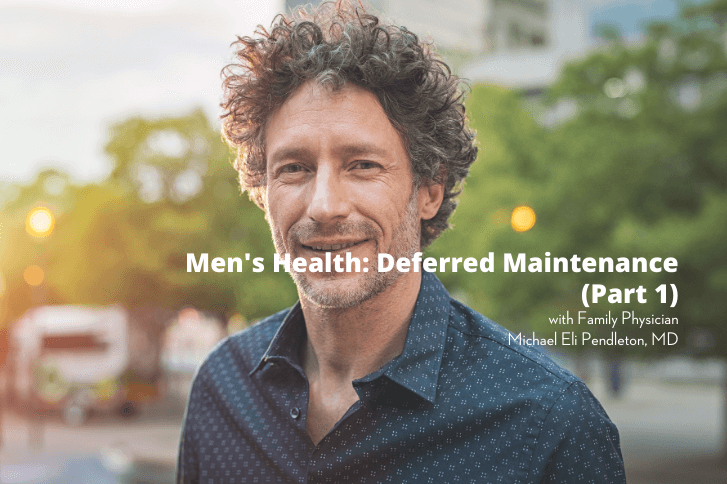Like a Pro: Kyle Morton – Mental Health

We are continuing on with our mini-series Like A Pro. Today, we hear from Kyle Morton,
goalkeeper for Louisville City FC.
To kick off the conversation, Kyle shares his experiences with mental health and advocates for prioritizing mental wellness. As a professional athlete, Kyle recognizes that pushing his body to the limits takes a toll on mental health. He gives some tips for prioritizing mental wellness, such as finding balance and relationships away from work.
Kyle shares how he has grown to recognize and respond to the warning signs of his mental health declining. He then goes on to talk about men’s mental health. Advocacy for men’s mental health is a fairly recent movement. He also talks about how to find balance while maintaining high-level professional performance, and he gives some valuable advice to up-and-coming athletes.
Finally, Kyle participates in a lightning question round. Hear about Kyle’s morning routine, his latest reading recommendation, and his favorite Louisville activity.
Key Takeaways:
- [00:57] Introduction to the episode and today’s guest.
- [02:11] Why mental health is important.
- [03:42] Kyle’s tips for prioritizing mental wellness.
- [06:55] Men’s mental health.
- [07:47] Finding balance.
- [10:03] Lightning round Q&A.
Learn more about Louisville City FC.
Follow Baptist Health:
Facebook
Instagram
Twitter
YouTube
Speaker 1: Welcome to HealthTalks NOW. Bringing you the facts you need to keep you and your family well. We’re happy you’re tuning in today. Baptist Health is committed to providing compassionate, high quality care that is centered on you. Listen to all of our podcasts to hear from Baptist Health physicians about the latest medical advancements in treatments. And get trusted information on timely health topics from our healthcare professionals. Whether you want to learn more about a specific condition or procedure, or find tips for living a healthy lifestyle, Baptist Health is here to help you become a healthier you.
Speaker 2: Welcome back to HealthTalks NOW, a podcast brought to you by Baptist Health. Where I ask the experts, the health and wellness questions that matter most. Today, we’re continuing on in a mini series that we’ve kicked off called Like a Pro. Baptist Health serves as the team physicians for both the men’s and women’s professional soccer teams in Louisville: Louisville City FC and Racing Louisville FC. And if you’ve been listening along with us, you know that we’re teaming up with members of each team to bring you special episodes, where we talk about things like nutrition, rest and mental health.
Today, we’re talking with Kyle Morton. Goalkeeper for Louisville City FC. Kyle is passionate about mental health. But this episode really goes beyond professional athletes. Collectively, we’ve been in kind of a mental health crisis for the past couple years. The pandemic added to the stress and uncertainty and pressure we already felt in daily life. Mental health is finally gaining the prominence it deserves and losing some of the stigma that previously prevented many from seeking help. Listen in, as we talk with Kyle and get some of his tips from maintaining and protecting mental health and dealing with stress like a pro. Well, Kyle, thank you so much for taking some time out of your day to sit and talk with us a little bit about men’s mental health.
Kyle Morton: Thanks. I appreciate you guys having me on.
Speaker 2: So I’m really excited to talk with you today about mental health. It’s something that’s so important and that I think is finally getting the attention it deserves. And I think for us as a society, but I think especially for men, this has been taboo for far too long. So talk to us a little bit about why this topic is important to you.
Kyle Morton: Yeah. I think the mental health topic is important to me because being in the professional sports industry, there’s probably a handful of guys that you don’t realize are struggling and they’re my friends and teammates and different relationships that I’ve had with these guys. And I think at times guys are struggling and don’t have somebody to lean on. It’s just something that I think needs to have a little bit more light shown on it.
Speaker 2: Yeah, I think there’s obviously been a stigma just in our culture in general about we don’t talk about struggling, we don’t talk about when we’re having a hard time or depressed or whatever, but I think it’s almost, I mean, I don’t want to say more acceptable for women to come forward with things like that, but it’s more, maybe less stigmatized than it is for a man to say that he might need help or that he’s struggling with something. I think there’s some expectation that men are just going to be able to carry it all or just handle anything and that they don’t ever have a hard time.
But I mean, obviously mental health is something that’s relevant to any human being. But let’s talk specifically about mental health when it relates to athletes, because burnout is a very real thing. And you all are pushing your bodies and your minds to the limits, to perform at really incredible levels. But if your mental health’s not prioritized, that’s going to take a toll. So do you feel comfortable sharing any personal experiences with us or what tips do you have for maybe decompressing or managing stress and prioritizing your mental wellness?
Kyle Morton: Yeah, I mean, I’ve had different experiences [inaudible 00:03:56] since you have been a pro and you have good season, bad seasons and with those good and bad seasons, your mental health kind of changes and sometimes you’re aware of it and sometimes you’re not. And I think when you’re not aware of it, the burnout becomes a real thing because you can overthink and just about soccer and I think it’s difficult to be aware of it, but once you are aware of it, it is the building block to finding happiness or finding good mental health. Some of the tips I would say is to find a balance outside of your sport, outside of your job, have relationships outside your job and just kind of find a happy medium of loving your job, focusing on your job, but also focusing and finding value in different things.
Speaker 2: Yeah. How do you find that if you are having those times where you’re struggling or that you recognize that you’re struggling, how do you find that has affected you in your performance on the field? I mean, obviously people can compartmentalize a whole lot, but it’s not something that you can just shut off. It kind of seeps into other areas of life.
Kyle Morton: Yeah, I think so for me as a goalie, it’s a very analytical and very thinking position. So I feel like when you’re not in a good place mentally, you can often overthink while you’re playing and have negative thoughts while you’re playing. And that’ll never be good for your performance when you’re thinking that you’re not good enough for… You’re struggling in one area or another. You can see that the off the field side of overthinking and not being a good place can often come into your play and it’s not a good thing.
Speaker 2: Yeah. That makes sense. What are some of the warning signs for you personally that might signal you that you’re nearing burnout or that would prompt you to reprioritize your mental health?
Kyle Morton: Being overcritical of myself, not giving myself a pat on the back, definitely overthinking when it comes to soccer, you come home and you think about soccer. You can’t really turn off that switch. And then in my personal life, I can see it where I become distant with friends and families where I kind of just keep within my own bubble. And I think another one is just time management of trying to put things off, procrastinating and when you need to do the laundry, you just do the laundry instead of just waiting and waiting and waiting.
Speaker 2: What are some of the ways that you compensate for that when you find that you are maybe disconnecting or isolating or having some of those warning signs pop up? What are some of the ways that you kind of proactively step in and take hold of that?
Kyle Morton: That’s a good question. Because sometimes it’s not always easy.
Speaker 2: It’s not easy, is it?
Kyle Morton: No. But like I said at the beginning, just being aware that you are slipping into that kind of trend, for me, it’s one of those things where you can create a schedule. So you kind of plan out your day, so you just kind of go through the motions. I want to say of just, okay, this time I have to do this, this time I have to do that. So it’s not really a choice if you’re going to do it or not, you just do it.
Speaker 2: That’s a good tip. I think if you are left to your own devices, when you’re struggling, most often, you’re not going to make the best choices or you’re going to choose something more destructive. Why do you-
Kyle Morton: You’re going to Keep scrolling.
Speaker 2: Ugh. Yes. Why do you think it’s historically been so hard for men to first just accept that mental health is a real concern, but then secondly, to be proactive in managing it or in asking for help when they need it?
Kyle Morton: I think mental health for men is kind of a recent thing and kind of just started to be spoken about. But I think men in general are very selfless that they want to put others in front of themselves and with that, you don’t really take care of yourself before you take care of the others in your life. I think until recently, because you’re not really aware of what’s going on with these thoughts are, you just kind of go with it, I guess. And you don’t realize that it’s a problem until it’s too late. But I don’t know why it’s hard for men to accept besides maybe having a little bit of pride in themselves. I don’t know. I can’t really answer it too accurately.
Speaker 2: Well, you talked about finding balance as being important for you. And I imagine the pressure of playing at a professional level is immense at times, but then you’ve also got just regular life pressure with family and relationships and everything else that we all have to deal with. How do you find that balance? I mean, that’s kind of an elusive question. I recognize a lot of people struggle with that every day, but have you found anything that works for you in finding balance so that you can maintain your performance at this extremely high level professionally, but then also take care of yourself mentally and emotionally?
Kyle Morton: Yeah. I think it’s really tough. I think you get pressure from all angles with pro sports then you get pressure of the everyday life and then you also have to perform at your highest level consistently. And I think for me, it’s, can you find that balance? Can you find where you go into work, you go into practice for those two, three hours, you focus solely on that and then after that you just switch off and what is done that day is done and you move on to your life. And I think having a really good support. I wanted to say staff, but support system around you with family and friends that aren’t involved in soccer. Don’t always want to talk about soccer is a big help.
Speaker 2: Some people to keep you grounded a little bit?
Kyle Morton: Exactly.
Speaker 2: So what would you say to a teammate or maybe a young athlete who might be listening today who’s kind of just at the start of their career or who’s just jumping in for the first time and kind of feeling that pressure of you’ve got to succeed. You’ve got to perform. What would you say to them if they might be struggling with burnout or feeling anxious or just overwhelmed or depressed?
Kyle Morton: Everything will be okay. I think it is one of those things where I think nowadays, especially with the pressure of social media, comparing yourself to others, that more people are probably feeling the way that you do than you think. I think another thing is that you are loved and no matter how well you play or how poorly you play, you are still going to be loved. And yeah, I just think, just keep on going.
Speaker 2: I love that. Well, before we let you go, would you be up for a quick little game of lightning around Q and A so we can get to know you a little bit better?
Kyle Morton: Go for it.
Speaker 2: All right. Number one, what is your morning routine?
Kyle Morton: Morning routine? Wake up, shower and then I’ll get into my Bible for a little bit. Kind of ground myself and then do some breathing work with a little bit of meditation and then come in, have some breakfast.
Speaker 2: Love that. What is your favorite book or maybe the book you’ve most recently read?
Kyle Morton: Favorite book right now is… It changes year by year. But right now it’s You Are the Placebo and it just talks about if you can control your thoughts, you can really think whatever you want and become whoever you want.
Speaker 2: Ooh, I’m going to check that out. Okay. What’s on your playlist that is guaranteed to give you an immediate mood boost?
Kyle Morton: I forget what the song is actually called, but it’s the blue song where it’s…
Speaker 2: The Blue Man Group.
Kyle Morton: Yeah. That, for some reason, [inaudible 00:10:52] me. Yeah.
Speaker 2: If you could play any position other than goalkeeper, what would you play?
Kyle Morton: Probably striker. Because you get to be the hero. Even if you guys lose, you get to score a couple goals and everybody loves you.
Speaker 2: That is exactly what Jim Bonner said. All right. What’s your favorite thing to do in Louisville?
Kyle Morton: Oh, I haven’t got to experience too much. Right now, I would have to say golf. I played golf a couple times, even though it was cold, it was still nice to get out there and experience a couple of courses.
Speaker 2: Love it. Well, thank you so much for chatting with us. Welcome to Louisville. Welcome to Louisville City FC. We are really excited to watch you on the field this year and come support you this season.
Kyle Morton: Cool. Thank you, Speaker 2. Appreciate you having me on.
Speaker 2: All right. We’ll talk to you later. Bye-bye.
Kyle Morton: Thanks Speaker 2. See ya.
Speaker 2: Well, thanks so much for tuning in today in our mini series, Like a Pro. Today’s conversation with Kyle was a really important one and I hope you took away some tips for maintaining, improving your mental health and managing stress that can really make a positive impact on your life. As always, if you enjoyed this episode, would you be so kind to leave us a review wherever you’re listening and share this with a friend that you think may benefit from the things we talked about today. We will include links to Louisville City FCs website in the liner notes of this podcast. And you can go on there, learn more about the team, the players, get a copy of their schedule and hopefully attend a game and catch us on the field. We will catch you next time on HealthTalks NOW, stay well.
Speaker 1: Thanks for tuning in to HealthTalks NOW. Staying healthy is a lifelong commitment and Baptist Health can provide the support you need to lower your risks, improve your quality of life and protect your long term health. Visit baptisthealth.com, to hear our other podcasts, learn about our services and find more tips to help you stay a step ahead of your health. Baptist Health, be a healthier you. This podcast is for informational purposes only and should not be relied upon as medical advice. The content in this podcast is not intended via substitute for professional medical advice, diagnosis or treatment. This podcast is not designed to replace a physician’s medical assessment and medical judgment. Always seek the advice of your physician with any questions or concerns you may have related to your personal health or regarding specific medical conditions. To find a Baptist Health provider, please visit baptisthealth.com.



